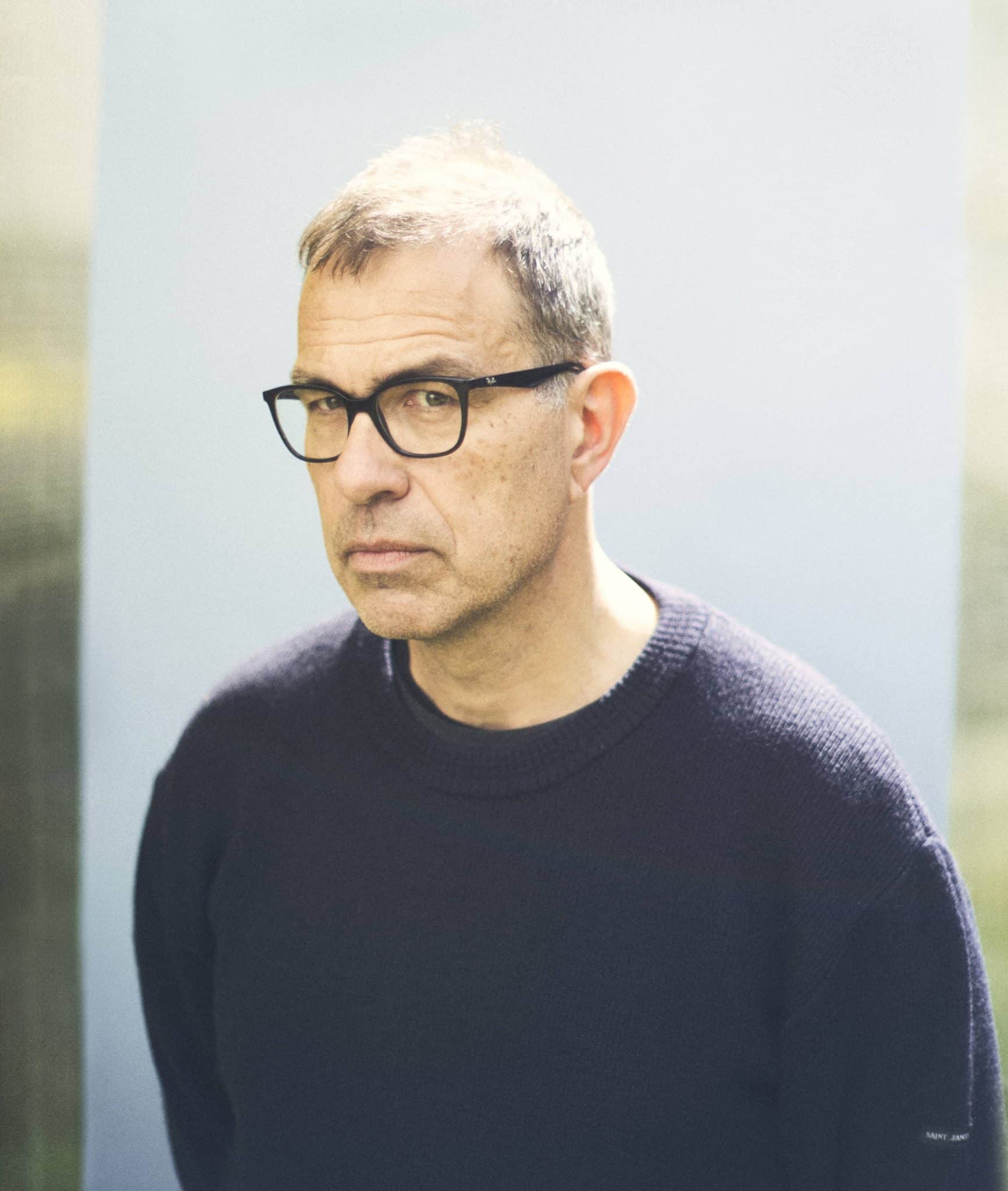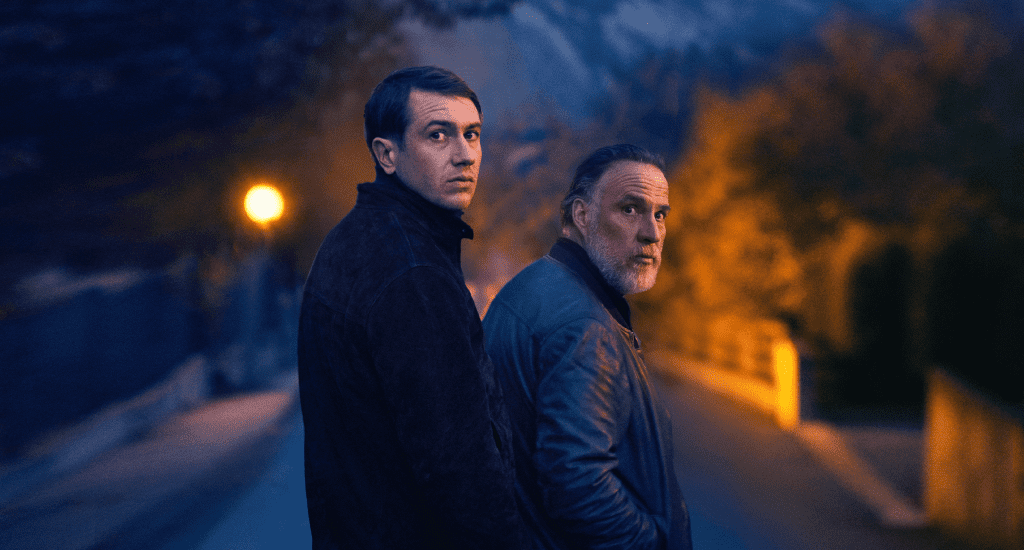
Dominik Moll is having a good year. After taking home the César award for Best Director over twenty years ago now for his feature Harry, He’s Here To Help, the German-born French director has made such a name for himself as one of the most reliable auteurs in the French film industry that it seemed only a matter of time before he would return to France’s prestigious awards show for another sweep. His most recent feature, The Night of the 12th, has given him just that, this year earning Moll his second Best Director award and first Best Film award at the ceremony.
A twisty police procedural following a pair of detectives investigating the gruesome death of a high school girl, the film is a surprisingly deft exploration of toxic masculinity and how even those who think of themselves as allies might carry ingrained preconceptions. Following in the footsteps of Zodiac and Memories of Murder, Night of the 12th’s motive isn’t necessarily to unmask the killer, but to probe the psyche of those who would try to.
We caught up with Dominik about using the film to comment on gender, his favourite police procedurals, and how his process has changed since winning his first César…
Can you tell me a little bit about how you stumbled upon the book that the movie is based on?
Well what sparked my interest for the book was the fact that the author had spent a year with the prime-unit in Versailles. She was with them day in and day out for a year. The book describes the everyday work and everyday life of police investigators — I was curious to read it because of course you see a lot of police stories in tv series, novels, films etc. and this was close to the real thing. I was curious to see how it would compare to fiction. By reading it I saw there were a lot of things that were never mentioned in fiction because it didn’t seem very “sexy” [laughs] etc. the procedural work that taking a lot of time, the importance of a group and all that.
The last investigation described in the book is about 50 pages, it tells of how one of the investigators becomes obsessed with a case, how he becomes haunted by it, and moreso, that he cannot solve it. When I read that one I thought there might be something that might be interesting for a film because usually the rule of the game in a police story is we start with a crime, and we end up handing the criminal over to the audience and everyone’s happy. Here that wasn’t the case — it shows the investigators deal with the fact that they cannot solve the case, what kind of frustration and anger and deception it generates ,and how they deal with that. I thought that was an original way to tackle a police story.
At one point in the movie Yohan says “all men killed Clara — it could have been any of them, even the ones who aren’t shitheads”. How did you come to make a movie that in many ways is a comment on gender and masculinity?
It wasn’t present in Pauline’s book — only in a very hidden way because she’s a woman and she was navigating an all-men’s world, so it was a woman’s view on that, but there was never any judgment from her on what she was observing. But when we started working on the screenplay we quickly felt that because the murder was a femicide and the young woman was murdered in a horrible way, that men’s violence would be a theme of the film. Even more importantly, it should be about how the investigators, who were also men, received that violence, what they do with it, how it leads them to question themselves.
Yohan says at one point: “I think there’s something amiss between men and women.” We wanted to explore what is not working right in that regard. We felt it was important to question that and of course, because of the Me Too movement which is very present in society unless you live in a cave in the desert somewhere, it’s difficult not to question yourself as a man about that, so it quite naturally filtered in the film. If we did the film five years ago, we might not have tackled those questions.
What do you hope male audience members will take home from watching this film?
I don’t want to give lessons, I think that’s always dangerous in a film, but to encourage them to ask questions, yes. What’s important to me is that often when there is a woman victim, and most of the time unfortunately it is women being the victim of rape or murder, you might hear that she had an active sexual life and very quickly the idea filters in that she might be partially responsible for it, and if she had behaved properly it would not have happened. That, for me, really shows that there is still a problem with how the sexuality of women is perceived by men. When men have sex with a lot of partners it is perceived as something positive and when a woman does it it is not. The idea is lingering somewhere, not only in Islamic countries, but in our supposed advanced western society, so I thought it was important to question that.
*Spoilers below*

We, of course, don’t find out who the killer is — did you have an Idea who the killer was as you were writing the film?
No I didn’t, and I didn’t want to because if I had known who the killer was and had hidden it from the audience it would be like cheating the audience. I think the audience should know as much as the director does, which is something Hitchcock has shown multiple times. If I had known it, it would also go against the idea expressed in the film: that all men, all of the suspects and perhaps any man, could have committed the murder. I think if I had known who the murderer was or if I had told it to the audience, it would almost be a relief for them, which I didn’t want to give. I didn’t want the problem to be solved, where the audience could go home and close the door and sleep…that is not the case because the violence still exists.
Are there any favourite movies you revisited to prepare for this movie?
When I worked with [co-writer] Gilles Marchand we talked about all kinds of things in relation to our project — we did mention Zodiac or Memories of Murder because there are two other examples of films where the crime is not resolved. Those films were so well-received so it gave us confirmation that a “non-resolution” would not be an obstacle for us making a good film. Then there were other influences like David Lynch’s Twin Peaks, in regard to how the victim remained present all through the story, she’s not just an excuse to get interest from the male investigators — we felt that in Twin Peaks Laura Palmer’s presence lingers over the whole story and we wanted our story to reflect that. There’s one film I like a lot called The New Centurions by Richard O. Fleischer which is about the everyday life of Los Angeles cops. There’s the way he describes how their professional lives and private lives intertwine and influence each other, and he does that quote brilliantly in that film. We talked about Jean-Pierre Melville’s films, because we felt that the figure of Alain Delon has something very opaque about him, you know almost nothing about him other than what you see, what he does, how he acts, how he looks at things. This is something we wanted to achieve with Yohan.
You’ve just won the César award for best director just over a decade since you first won the award for Harry’s Here to Help. How do you feel like your process as a filmmaker has changed during that period of time?
One of the things I’ve learned is that it’s important to take pressure off your shoulders. When I won the first cesar I put a lot of pressure on myself thinking that I had to make a film that was even better, and that’s the best way not to achieve that. I think I’m taking things with less pressure — It’s important to take pleasure in making a film.





